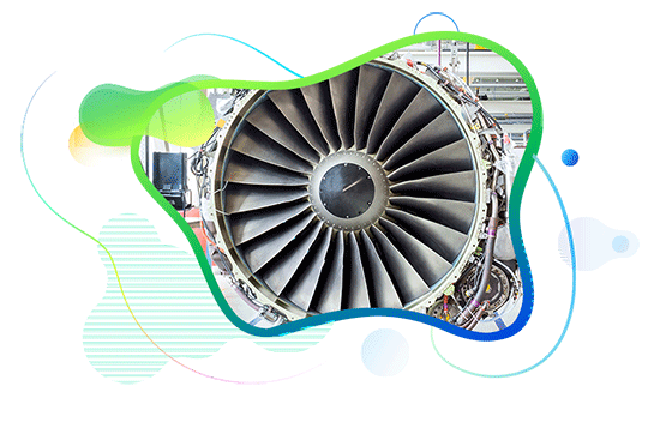
How Real-Time Analytics Streamlines Airline Operations
Published :

Airlines worldwide manage a staggering number of flights daily, generating massive amounts of data that can transform the way they operate. From flight scheduling to maintenance planning, leveraging this data is crucial for success.
Gone are the days of paper-based record-keeping. Modern aviation MRO software and aircraft fleet maintenance software provide real-time analytics capabilities, optimizing fleet performance and minimizing downtime through data-driven decisions. Aviation maintenance software and aircraft maintenance tracking software have become powerful tools for airlines, enabling them to:
The aviation analytics market is booming, projected to reach $7.45 billion by 2032. To harness this power, airlines need a robust infrastructure capable of handling the massive data influx. This infrastructure should integrate key data sources, such as
Real-time analytics capabilities are central to success. A comprehensive aviation maintenance software solution equipped with flight maintenance tracking software features can significantly reduce unplanned maintenance costs and delays. Additionally, the system should provide secure access to relevant data for authorized personnel.
A dynamic database that connects disparate data elements is key to maximizing infrastructure value. These connections enable accurate calculations and informed decisions. The right setup allows airlines to analyze operations with ground handling and catering companies, fostering smoother collaboration and streamlined processes.
Real-time data analytics empowers airlines to monitor critical parameters like engine temperature and fuel consumption patterns. By spotting trends before problems arise, airlines can:
Smart data analytics solutions enable airlines to translate operational data into measurable financial returns. Real-time data analysis helps in:
For instance, Delta Airlines leveraged data analytics to save an impressive 100 million gallons of jet fuel, resulting in annual cost reductions exceeding $300 million. Additionally, New Distribution Capability (NDC) enables airlines to offer dynamic pricing based on real-time market conditions, maximizing transaction value and maintaining competitiveness.
Monica Badra, founder of Aero NextGen, emphasizes the transformative power of data analytics: "By embracing digital transformation, MROs can achieve operational excellence and deliver a world-class customer experience. Analytics-driven insights enable us to optimize every step of the process, from procurement to delivery, ensuring timely and cost-effective maintenance."
Data analytics plays a pivotal role in modern airline operations, paving the way for improved efficiency and significant cost savings. From maintenance to pricing strategies, utilizing information across all operational areas is crucial for success.
The data speaks for itself. Airlines achieve a 5% reduction in fuel costs through route optimization, 12% savings in maintenance expenses, and a remarkable 350% improvement in processing speeds. These results demonstrate the tangible returns on investment that properly implemented analytics delivers.
Building the right infrastructure is the first step towards evidence-based operations. By combining real-time analytics capabilities with predictive maintenance, airlines can proactively identify potential risks and mitigate their impact. Delta's success story exemplifies the significant cost savings achievable through smart fuel management alone.
Success with airline analytics requires both technical expertise and strategic implementation. Systems should handle live data processing while maintaining controlled access for authorized personnel. These investments translate into streamlined operational efficiency and a strong competitive advantage in the dynamic aviation market.

All Rights Reserved. © Copyright 2024. Ramco Systems.